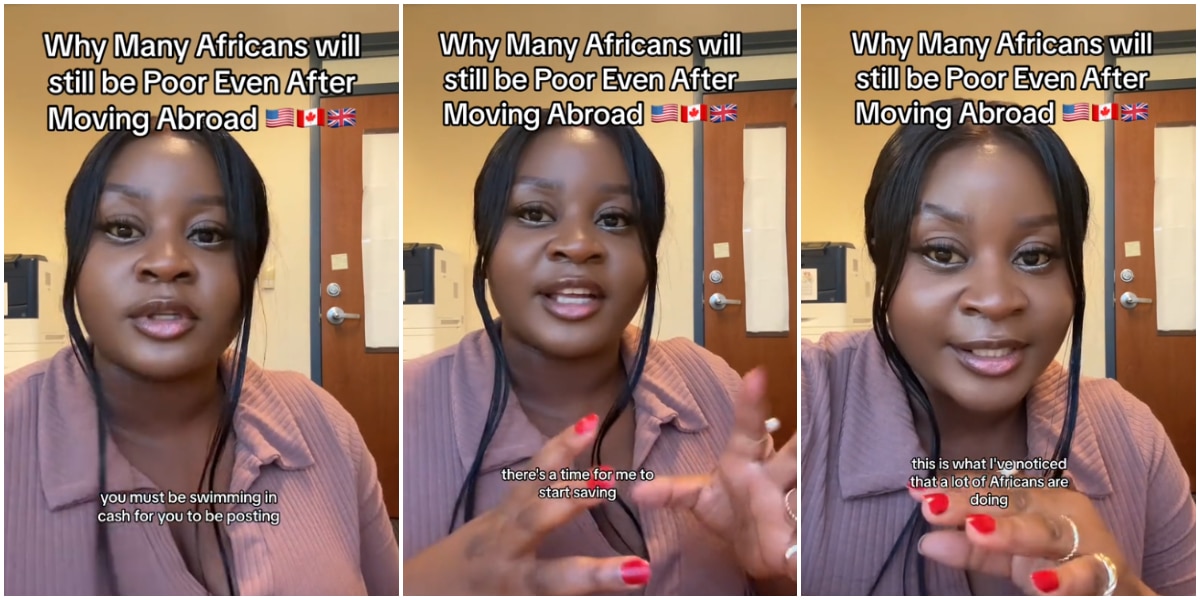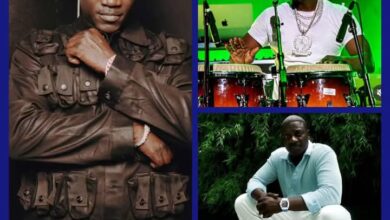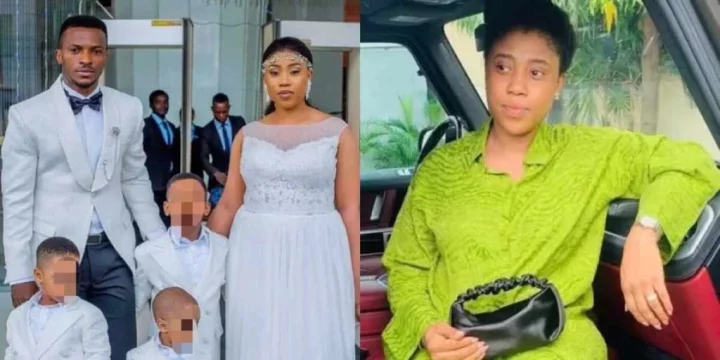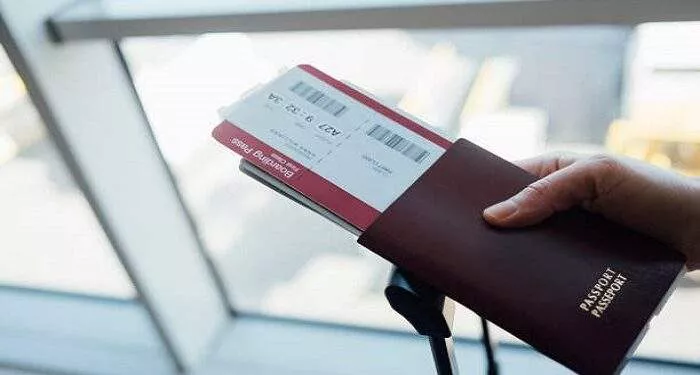Nigerian Slangs And Their Meanings 2024
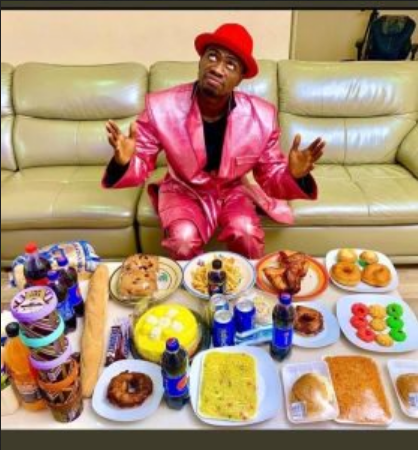
Queen’s English is cool, but it doesn’t come close to Nigerian slangs and their meanings. Our slangs elevate conversations and leave outsiders wondering, “What the hell is happening?” But since we’re generous and don’t want anyone to miss out, we’ve compiled the ultimate guide….CONTINUE READING
Watching football games on TV is great, but have you ever watched Nigerians go at it during a live soccer match on the streets? You must be equipped with these Nigerian football slangs to fully appreciate the premium drama, fights and cussing.
Otu:
A lazy player.
Baller:
A pro player. Everyone wants him/her on their team.
Felele:
A light, rubber ball, usually the perfect option for impromptu street matches.
Release:
To pass the ball to your teammate.
Guiding:
To block an opponent from accessing or getting close to the ball.
Idea:
When you impress the viewers, with an impressive pass, for instance.
No bouncing:
You’re not allowed to let the ball hit the ground.
Monkey post:
A makeshift goalpost constructed with stones and other objects.
Man-on-you:
When an opponent is after your life during the game.
Pidgin slangs
When Nigerians are not acting bougie with the Queen’s English, or speaking their local dialect, pidgin is the go-to. Think of Nigerian pidgin as the butter that brings two slices of bread together. Your street game is dead if these Nigerian pidgin slangs aren’t part of your vocab.
E choke:
Davido coined this to mean something is overwhelming or impressive.
Ehen:
A coat of many colours, the meaning of this Nigerian pidgin slang depends on the context. It can mean “and so?” “okay”, “say what?” “I get it”, “continue”, etc.
Naso:
Used with a dismissive tone, this Naija slang can mean “You’re lying, but I hear you”, “I agree with you”, “I concur”, etc.
Komot:
Get out of the way. Go away. Also, see “Getat” below.
Aza:
Bank account. At any time, a benefactor can request your “aza” for a giveaway.
Ment:
An abridged version of “mental”, this slang is often used to question a person’s sanity. For example: “You dey ment?”
Knack:
Literally means “to hit”, but in the Nigerian context, it also means “to get laid”.
Sapa:
This popular Naija slang is used to describe a state of brokenness or extreme poverty. God forbid.
Japa:
This Yoruba word means “to flee, escape or run”, but it’s what you’ll find every migrating Nigerian using to describe the process.
Gbege:
This simply means trouble, problem and tribulations. May we not enter gbege, IJN.
Ajebo:
Short for “ajebutter” and partners in crime with “butty”, this slang describes people born with silver spoons that feed them butter every day of their lives.
Nigerian insults
We’re peaceful people, but make no mistake, Nigerians don’t go easy during verbal attacks. So if you want to keep your street credibility up, these Nigerian insults need to be within reach at all times.
Bolo:
Often used to describe someone who’s slow and lacking when it comes to street-smarts.
Mugu:
This is your go-to slang for anyone who’s easily taken for a ride.
Kolo:
Used to question the sanity of an individual. It’s interchangeable with “ment”.
Oversabi:
An “I too know”. Someone who knows it all.
Amebo:
Someone who gossips. A lot.
Wobia:
This is your high-impact Naija slang for insulting a glutton. One who, like Esau, can sell their birthright or family members for food. Use with caution.
Ode:
Although it originally describes a fool, these days, this Naija slang can pass as an expression of love.
Popular Yoruba slangs
Yoruba people love owambes, but what they love more is weaving their language into something of beauty. Don’t be surprised if you find yourself smiling even while receiving their local insults. But in case any of these popular Yoruba slangs are hurled at you, run back here to check for their meanings.
Lori iro:
This phrase is used when someone is telling lies that can rattle the dead.
Mafo:
Made popular by the singer, Naira Marley, this Yoruba slang is your go-to when you want to tell someone not to be intimidated, bothered or rattled.
Wa ti ma gbo:
Also “WTMG”, this slang was culled from Adekunle Gold’s hit record with singer, Davido. It means: “You must’ve heard.”
Omo iya mi:
Think of this Yoruba slang as the English variant of “My bro“. Often used between guys whose relationship has grown out of ordinary friendship.
Idan:
A young OG who has it all. He works hard and plays even harder, never saying no to an opportunity to make extra money. In essence, a streetwise brother.
O lule:
Made popular by president-elect, Bola Tinubu, this is your go-to Yoruba slang for someone who has suffered defeat.
Sora fun obinrin:
Be wary of women. No, literally.
Otilo:
Made popular by dancer, Poco Lee, this Yourba slang means “it has gone”.
O tun ti zeh:
This Nigerian Yoruba slang was coined by singer, Portable. It is your go-to when expressing excitement after getting an unexpected gift or good news.
O por:
This slang means “it’s plenty”. Usually used when you’re impressed.
Gbe mi de be:
Also “gbe mi trabaye”, this popular Yoruba slang means to get high on alcohol or weed.
Tule:
Another slang made popular by Davido, it means to “release” or “let go”.
Nigerian Gen Z slangs
We believe in giving everyone a fair fighting chance. So if you want to keep up, you need to religiously study these Nigerian Gen Z slangs.
Clapback:
A fitting response — usually one that stings thrice as hard — to someone who comes at you.
L:
Short for “loss”. When you take your L, it means you’ve accepted your failure.
W:
Just like L, W is a common Gen Z slang used when you win or succeed at something.
Salty:
This isn’t just used to describe Lot’s wife or your cooking skills. “Salty” in Gen-Z lingo means an angry bird or a jealous fella.
Opp:
You don’t like this person. It’s on sight whenever, wherever.
Fam:
“Fam” is to the Gen Zs what “Bro” is to millennials.
God, abeg:
You’re tired, and you need God to do something about it fast.
Bop:
Music that hits the right spot.
Flop:
A miss, a fail, a never-should’ve-happened.
We meuve:
This slang means “life goes on.” Often used when trying to offer some motivation to yourself or others.
We outside:
This is what Gen Zs say anytime they come out to party.
Baddie:
She’s the moment; she’s mother. She’s the babe other babes aspire to be. An expensive maami.
Rent-free:
Use this slang when something or someone can’t leave your mind. It stays there no matter how hard you try.
Periodt:
End of discussion.
Trenches:
The ghetto. For example, Mushin may be classified as trenches.
FOMO:
Fear of missing out.
IYKYK:
If you know you know.
JK:
Just kidding.
GOAT:
Greatest of all time.
HMU:
Hit me up.
G2G:
Good to go.
TBH:
To be honest.
NGL:
Not gonna lie.
WFH:
Working from home.
WYD:
What you doing?
WDYM:
What do you mean?
IKR:
I know right.
ISTG:
I swear to God.
NGL:
Not gonna lie.
ATP:
At this point.
TYSM:
Thank you so much.
YKTV:
You know the vibes. Use it instead of “you understand” whenever you find the opportunity.
WYA:
Where you at?
Popular Igbo slangs
Igbo people speak, and it’s often hard to tell if they’re complimenting or roasting our asses. If you’re curious to stay updated, these are the popular Igbo slangs you need to get familiar with ASAP.
Odeshi:
Means “It’s not leaking.” This popular Igbo slang refers to people with supernatural powers who never cry when pain hits.
Biko:
Please. Used to beg.
Onye isi okanga:
Someone who passes as a trendsetter.
Icha anya:
This is your go-to Nigerian Igbo slang for getting stoned.
Nkita la’cha ike gi:
“May dog lick your butt.”
Tuu:
This Igbo slang means “nonsense”.
Asa:
“Fine girl”.
Ote:
Often used when referring to something of quality or an original product.
Nna ehn:
In the same class as the Nigerian pidgin slang: “Nawa o”, you can use them interchangeably.
Tatu aka:
Someone who spends money in an extravagant manner.
Jisi ike:
“Keep it up.”
Isi ewu:
“Goat head”. Refers to a popular Igbo delicacy or someone whose head you think resembles a goat’s.
Nnukwu isi:
“Big head”. Can also be used by lovers doing love things.
Popular Hausa slangs
Our Northern brothers and sisters have slangs for days, and we’ve been taking notes. These popular Hausa slangs should be your friend if you find yourself in Northern Nigeria.
Jaara:
Derived from the Hausa word “gyara”, this Hausa slang means to “add extra”. Could be extra food, money or love.
Maigad:
A security man. Gotten from the Hausa word “mai” and English word “guard”.
Kayanmata:
A sexual stimulant for women, made popular by Instagram vendors.
Burantashi:
A brand of aphrodisiac that stimulates men.
Kudi:
This is the popular Hausa slang for money.
Shikena:
Means “That is it.” No further additions or subtractions.
Nigerian military slangs
We know the Nigerian Police is your friend, but if you want to spark an even greater relationship with soldiers, these Nigerian military slangs will help you do just that. You might need them to avoid trouble if you ever find yourself in the barracks.
Latrine queen:
The soldier in charge of cleaning toilets.
Clown:
A cadet in his or her first year.
Boye:
Fancy Naija military slang for “garri”.
Massage:
If a soldier wants to give you a massage, you better run! You’re about to get some premium beating.
Blue Falcon:
A betrayer.
Bravo Zulu:
A compliment that means “well done”.
Advance:
Move forward.
Disarm:
To retrieve or take away your weapons.
Royal Highness:
Reserve this Nigerian military slang for your number one girlfriend. She’s the queen above other queens. She’s mother.
Port Harcourt slangs
We’ve heard things about Port Harcourt and the general consensus is you don’t want to be caught mis-yarning. You need to get familiar with these popular Port Harcourt slangs to play it safe.
Pam:
“Hide” or “Relax”, depending on the context.
Abobi:
Often used to refer to your guy.
White:
No, Port Harcourt people aren’t referring to colour. This is the PH slang for ₦50.
Movement:
Used to signal your exit.
Malle:
This means “mother”.
Disembark:
To stop or go away.
Who goes:
This is your go-to slang for “Who is that?”
Conti:
This means “to be afraid”.
Die it:
If a PH brother tells you to die it, it means you’re saying too much and should shut up.
Arrange:
This means to “help with something”.
Nigerian slangs for money
The naira may be struggling against dollars and pounds, but Nigerians love their currency enough to come up with fancy names for them. These are the popular Nigerian slangs for money you need to know to avoid being outsmarted.
₦50:
Wazo
Figo:
₦50
10 Fiba:
₦100
20 Fiba:
₦200

